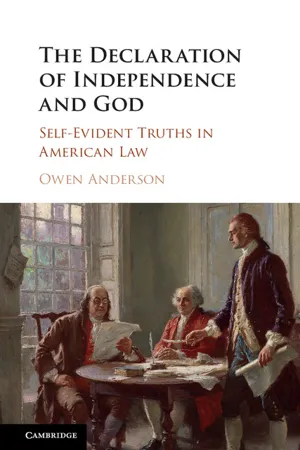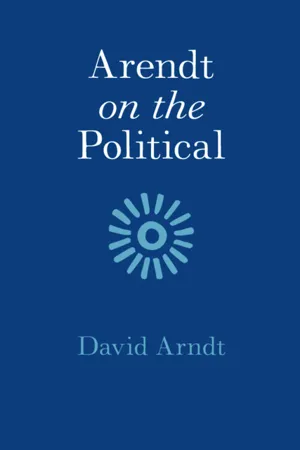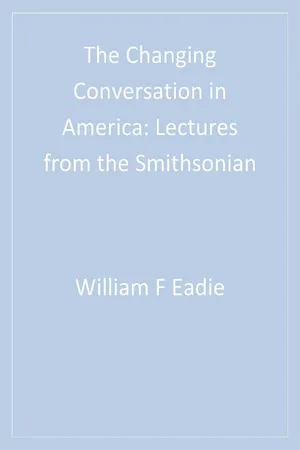Politics & International Relations
Philosophy of the Declaration of Independence
The philosophy of the Declaration of Independence is rooted in the idea of natural rights, asserting that all individuals are entitled to life, liberty, and the pursuit of happiness. It also emphasizes the right of the people to alter or abolish a government that fails to protect these rights. This philosophy reflects the Enlightenment ideals of individual autonomy and self-governance.
Written by Perlego with AI-assistance
Related key terms
1 of 5
3 Key excerpts on "Philosophy of the Declaration of Independence"
- eBook - PDF
The Declaration of Independence and God
Self-Evident Truths in American Law
- Owen Anderson(Author)
- 2015(Publication Date)
- Cambridge University Press(Publisher)
1 INTRODUCTION: THE FORMULA OF THE DECLARATION OF INDEPENDENCE Epistemology, Metaphysics, Ethics “They say they want the kingdom But they don’t want God in it.” 1 The Declaration of Independence serves the role of a creed in American thought and history. It was framed after a century and a half of colo- nial history. Although attributed to Thomas Jefferson, its final form included edits by a committee, and delegates from the colonies signed it. The largest part of its body is a list of grievances against the king, and it describes itself as a defense of the separation between England and the colonies. However, in giving this defense, it gives a succinct foundation of the epistemology, metaphysics, and ethics on which the defense rests. These three areas form the foundation of a worldview about knowledge, God and man, and the pursuit of the good life. This foundation is stated in the well-known phrase “We hold these truths to be self-evident, that all men are created equal, that they are endowed by their Creator with certain unalienable Rights, that among these are Life, Liberty, and the pursuit of Happiness.” The Declaration of Independence serves to give the beginning ideas for the country. Part of this study is to understand what role God the Creator plays in that country and what role God plays in the kingdom. BASIC BELIEFS Before getting into the historical analysis, we need to set the context by doing work in philosophical prolegomena. Since this study includes the idea of self-evidence, we need to get into focus related ideas about 2 The Declaration of Independence and God reason, belief formation, and the laws that govern belief formation. The sections that follow provide a look at these topics. We will be studying the most basic questions that humans can ask. Epistemology is the theory of knowledge. It asks what is knowledge and how it is different from correct opinion. - eBook - PDF
- David Arndt(Author)
- 2019(Publication Date)
- Cambridge University Press(Publisher)
Politics is not possible except among citizens who are equal by law. This equality is an essential condition of a free polity. We hold the principle of equality not because it expresses a self-evident truth about human beings, but because it makes possible political freedom. That all men are created equal is not self-evident nor can it be proved. We hold this opinion because freedom is possible only among equals, and we believe that the joys and gratifications of free company are to be preferred to the doubtful pleasures of holding dominion . . . These are matters of opinion and not of truth – as Jefferson, much against his will, admitted. Their validity depends upon free agreement and consent; they are arrived at by discursive, representative thinking; and they are communicated by means of persuasion and dissuasion. OR, –. OR, . OT, . BPF, . The Declaration of Independence The validity of the principle of equality does not rest on self-evident truth but on the opinion that life in a free polity is better than life under any form of rule. “Endowed by Their Creator with Certain Unalienable Rights” The Declaration claims that all men by nature have rights. Arendt noted this claim implies a certain understanding of human nature. Rights are understood as properties that belong to the nature of each individual, just as natural substances have intrinsic and objective properties that exist in and of themselves. The idea is that positive laws can be based on natural laws, which can be derived from natural rights, which can be deduced from human nature. The very language of the Declaration of Independence as well as of the Déclaration des Droits de l’Homme – “inalienable,” “given with birth,” “self- evident truths” – implies the belief in a kind of human “nature” . - eBook - PDF
The Changing Conversation in America
Lectures from the Smithsonian
- William F. Eadie, Paul E. Nelson, William F. Eadie, Paul E. Nelson(Authors)
- 2001(Publication Date)
- SAGE Publications, Inc(Publisher)
THE CHANGING CONVERSATION IN AMERICA The Declaration of Independence in the Rhetoric of American Politics 3 The Declaration of Independence in the Rhetoric of American Politics STEPHEN E. LUCAS University of Wisconsin, Madison No public document other than the U.S. Constitution has played a more crucial role in American political conversation than the Declaration of In-dependence. More than a century ago, Moses Coit Tyler deemed it “the one American state paper that has reached to supreme distinction in the world, and that seems likely to last as long as American civilization lasts” (Tyler, 1897, p. 498). Tyler’s assessment is no less apposite today. Having spent a number of years studying the Declaration, I can attest both to its historical importance and its abiding hold on the public imagination. Part of my research has focused on what I call the rhetorical ancestry of the Declaration—how it was shaped by long-standing conventions of for-mal political discourse that imposed powerful constraints on the Declara-tion’s structure and content (Lucas, 1998). I have also sought to explain the Declaration’s rhetorical artistry—to demonstrate, by close analysis of the text, not only how the Declaration was adroitly composed to meet the political needs of the moment in July 1776 but also why it remains to this day an acknowledged masterpiece of political prose style (Lucas, 1989, 1990). In this chapter, I turn to a third aspect of the Declaration—its rhetor-ical legacy. By this, I mean the way the Declaration has been used in the 39 dialogue of American politics since the establishment of independence from Great Britain. During this time, the Declaration has become, in D. W. Brogan’s phrase, “the most sacred of all American political scriptures” (Detweiler, 1962, p. 557).
Index pages curate the most relevant extracts from our library of academic textbooks. They’ve been created using an in-house natural language model (NLM), each adding context and meaning to key research topics.


